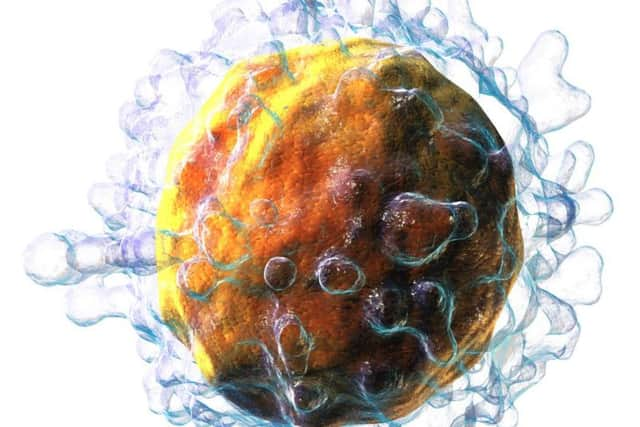Scottish scientists map out how immune cells can fight infections
The researchers from the University of Dundee focused on T lymphocytes, a population of white blood cells essential for immune responses to cancer, bacteria and viruses, and transplanted organs.
Mapping out how the cells control expression of more than 9,000 proteins as they take part in immune responses, they found an ability to make effective responses can be shaped by the local oxygen and nutrient environment.
Advertisement
Hide AdAdvertisement
Hide AdThe results - published in the journal Nature Immunology - are said to give a vital insight into how these responses could be further manipulated to treat autoimmune diseases and cancer.


Professor Doreen Cantrell said: "These results have implications for our understanding of how harmful or beneficial immune responses can be manipulated for better health outcomes in organ transplantation and cancer.
"A critical discovery is that exposure to foreign stimuli, such as viruses and bacteria, make T lymphocytes switch on expression of key sensors for oxygen and nutrients, and also make T lymphocytes switch on expression of transporters that allow cells to import nutrients from their environment.
"Drugs used to block immune responses work by controlling these key metabolic pathways."
The research team also brought together experts in immunology and scientists with expertise in mass spectrometry and data science technology.
Professor Angus Lamond said: "These critical discoveries show the enormous value of the collaborative research environment here at the University of Dundee, which allows world-leading scientists to bring together their overlapping areas of expertise to solve important biological problems."
